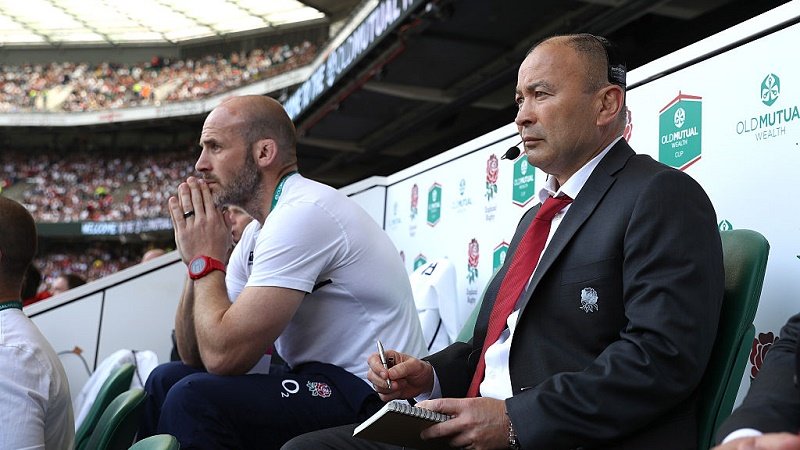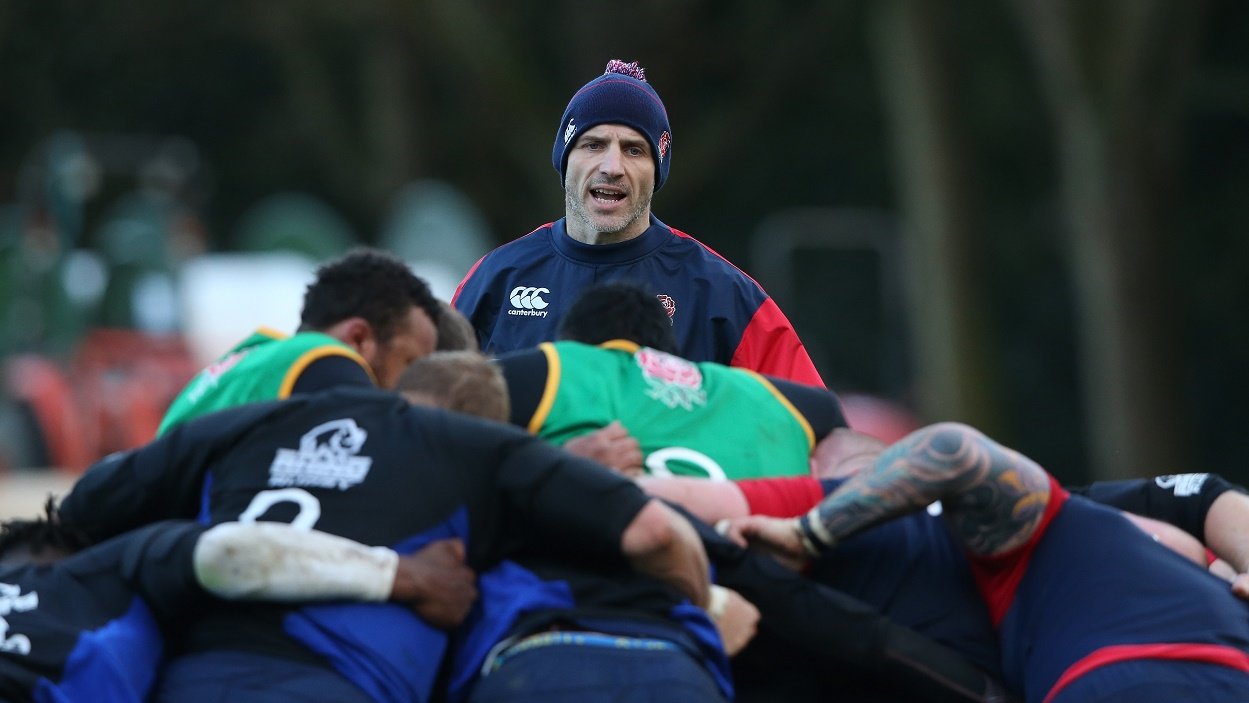Paul Gustard remembers every try ever scored against his teams and once brought live wolves and snakes to training. Lee Calvert delves into the methods of the eccentric genius behind England’s much-improved defence.
England head into their first November international against South Africa next week looking to beat the Boks for the first time since 2006. If they win, they’ll owe a lot of their success to their unconventional defence coach Paul Gustard.
For a long time, Rugby Union didn’t bother with defence coaches. People from Rugby League would jibe that it looked like teams didn’t bother with defence at all, let alone a coach. That changed in the early 2000s. Union pillaged league for coaches and charged them with building great repelling defensive walls. The godfather of modern rugby union defence coaching was Phil Larder, the former Great Britain Rugby League coach, who shaped the defensive pattern for England’s 2003 Rugby World Cup win. Many others followed him from league:P Mike Ford, Denis Betts, Shaun Edwards, Andy Farrell, Les Kiss and Dave Ellis to name a few. The flood of league crossovers was so unrelenting that many questioned whether a coach with a union background would ever be given a high-profile defence position again. Then Paul Gustard arrived.
[rugbypass-ad-banner id=”1475535264″]
Gustard had been a classic, abrasive, aggressive back row forward in his playing career. He reveled in the defensive side of the game and spent some time playing under Larder’s defensive system at Saracens. “I liked tackling,” he said of his approach to the game. He moved into coaching at Saracens on the recommendation of none other than Eddie Jones, who was consulting there at the time.
Gustard built his reputation at Saracens. Much was made of his “Wolfpack brand”, but that would mean nothing if he hadn’t delivered the impressively low tries-against figure that’s the ultimate measure of his success. Like the other defence coach legend Shaun Edwards, Gustard takes tries conceded by his teams extremely personally. Each one is seen as an insult that is never forgotten and must be avenged. But unlike Edwards, who is famous for being furious every minute of the day, the England man is a far calmer character.
“There’s no malice or anger if you make a mistake,” said Jacques Burger, a lynchpin of the Wolfpack system at Saracens. “As long as the effort is there. He sits down with you and tells you exactly what you should or shouldn’t have done. You talk it out.”
So what exactly is Gustard’s system? The big change in union in the past fifteen years was the paradigm shift from a traditional drifting defensive line to the league-style “blitz”. This was then modified again with the likes of the out-to-in umbrella blitz favoured by Andy Farrell, the previous England incumbent. Gustard describes his system as “connected line speed” – a mix of both drift and blitz. He also expects very person to defend to the same standard. There’s no room for poor defenders to be hidden away. Everyone has a role to play.
But defence is about more than systems. Edwards believes it’s an emotional thing, not just a physical one, and Gustard excels in encouraging this part of the role. His enthusiasm and personality is infectious, with his behind-closed-doors video sessions the stuff of legend. Energising the squad is as important to him as teaching and coaching them. He reportedly sets up reward systems with chocolate bars and wolf belts as prizes, and has brought actual live wolves and snakes into training.

His system suffered a major setback in Australia, where despite the historic 3-0 whitewash win, England conceded five tries in the third test and Gustard was hauled before Eddie Jones for a chat about it. “It wasn’t unfair criticism from Eddie, it’s a critique,” he said, “It is refreshing and it is rewarding. If you take it personally, then it’s your ego at work. The game isn’t about us, it’s not about our ego, it’s about the players and if we can make them better, then that’s my job.”
Following this first blemish on his reputation he doubled down on his task, spending time in the summer with league teams all over the world, bringing Judo into England’s training sessions and no doubt torturing himself over those conceded tries.
Are any complicated changes coming? “I try to keep it as simple as possible, probably because I am stupid so it is easier for me,” he joked.
It’s hard to imagine South Africa will be laughing on 12 November.



































































